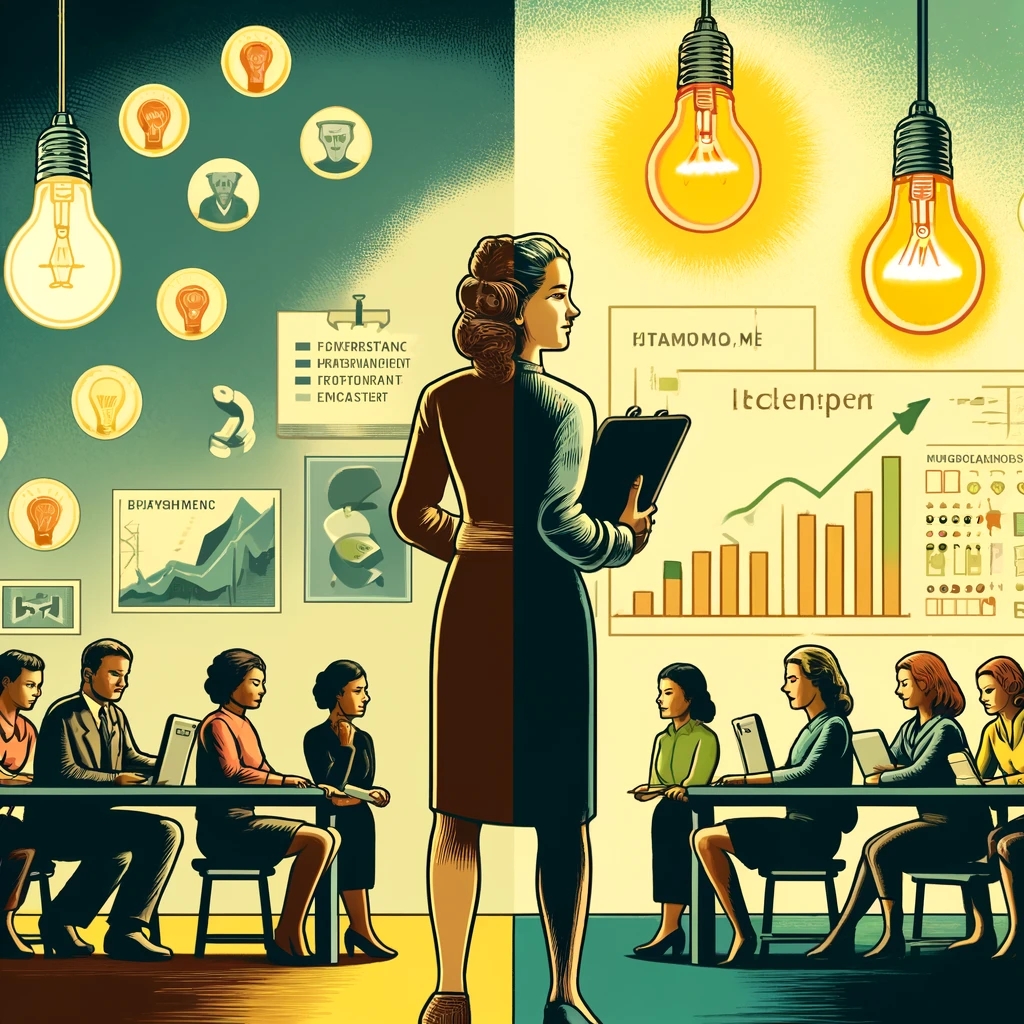Make Products People Love – Part One
This is the first part of a three part series on how founders can make products people love. To begin, we have to humbly face the truth that as a founder, you are probably making something you love. Make something other people love if you want to succeed.
Unlearning is a transformative process that involves the deliberate effort to change or discard previously acquired knowledge, beliefs, or behaviors that are found to be incorrect, outdated, or harmful. When you want to make something other people will love, the ability to unlearn things you may love becomes crucial in avoiding customer ignorance and fostering a culture of continuous learning and growth in your startup. This post explores the significance of unlearning when making something people love, outlines strategies to facilitate unlearning for yourself and your company, and examines the challenges and benefits of this process to finding product-market fit.
Understanding Ignorance and the Need for Unlearning
Ignorance, in this context, refers to a lack of knowledge, understanding, or awareness about a customer or the broader complexities of your customer’s needs and values. It can stem from outdated information, misconceptions, biases, or the inability to access or interpret new information accurately. Ignorance most often is not the absence of knowledge but holding onto incorrect or incomplete information as truth.
Unlearning addresses this aspect of ignorance by challenging our current knowledge base and making room for new, more accurate information. It is a deliberate process that requires recognizing that some of what we know may be wrong or incomplete and being open to changing those understandings. Unlearning is essential in a world where technological advances, societal shifts, and new scientific discoveries constantly reshape our understanding of reality, and our customer’s needs and preferences constantly change with it.
Strategies for Unlearning
- Reflective Practice: Engage in regular reflection on your beliefs, knowledge, and behaviors in regard to who your customer is, what they value, and how they use the product. Question the origins of your assumptions and the evidence supporting them. Reflective practice encourages a critical examination of one’s understanding and opens the door to recognizing areas in need of unlearning.
- Seek Out Diverse Perspectives: Exposing oneself to different customer viewpoints and experiences is vital in challenging customer ignorance and fostering new learning. This exposure can highlight gaps in knowledge or biases, providing opportunities for unlearning and relearning. We STRONGLY encourage our founders to conduct hundreds of customer interviews using methodology outlined in the Mom Test to accomplish this.
- Embrace Vulnerability and Curiosity: Admitting that one’s knowledge may be flawed or incomplete requires vulnerability. Approaching learning with curiosity rather than defensiveness allows for a more open and effective unlearning process. Take joy when you realize you’re wrong about something.
- Critical Thinking and Media Literacy: Develop skills in critical thinking and media literacy to better evaluate the accuracy and bias of the information being consumed. This skill set is crucial in distinguishing between credible information and misinformation or outdated knowledge.
- Continuous Learning: Commit to lifelong learning as a mindset. Recognize that knowledge is ever-evolving and that staying informed requires ongoing effort to learn, unlearn, and relearn. Nelson Mandela once said, “I never lose. I either win or learn.” When you’re always learning, you’re always winning!
Challenges in Unlearning
Unlearning is not without its challenges. Cognitive biases, such as confirmation bias, can hinder our ability to see beyond our current beliefs and accept new information. Emotional attachments to certain beliefs or the discomfort of cognitive dissonance can also make unlearning difficult. Additionally, team, social and cultural pressures can reinforce outdated or incorrect beliefs, making the process of unlearning even more challenging for product development. Pivoting or abandoning beloved features when they don’t offer value can be painful if we’re emotionally and socially committed to them.
You and your team are preprogrammed to like things that reinforce your feelings and ideas, just one of many biases you should be familiar with. The Decision Lab has an amazing list of cognitive biases that is worth your time to study. The more bias you recognize, the better you can figure out your Dunning-Kruger reality, so to speak (click the bias link if you’re curious about Dunning-Kruger, no worries if you already know it all, wink, wink).
The Benefits of Unlearning
Despite these challenges, the benefits of unlearning are profound. First, it fosters a more accurate understanding of your customer, enhancing your ability to make informed product decisions based upon their needs and willingness to pay. Second, it promotes flexibility and adaptability, qualities essential for a start-up to find product-market fit. Third, unlearning can lead to personal growth and improved relationships, as it encourages empathy and understanding by challenging our biases and assumptions about others. This means that the team that unlearns the best, is the team that also works together most efficiently. Win-Win!
Final Thoughts
In a world saturated with information and where knowledge is continuously evolving, the ability to unlearn is as crucial as the ability to learn when doing customer research. Unlearning allows us to shed outdated, incorrect, or harmful beliefs and behaviors about our customers and ourselves, making room for new information and perspectives that foster trust and understanding. You will, in turn, build something people love because you know them. This process is essential in avoiding ignorance and fostering a culture of continuous growth and improvement.
While unlearning presents challenges, particularly in overcoming cognitive biases and emotional attachments, the benefits it offers are substantial. By adopting strategies such as reflective practice, seeking diverse perspectives, embracing vulnerability, and committing to continuous learning, start-ups can navigate the complexities of unlearning, identify the true customer need, and make something people want. Ultimately, unlearning is not just about discarding old knowledge but about making space for new understandings that lead to product success.
